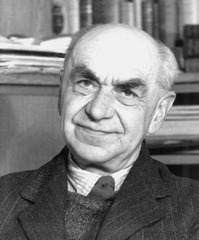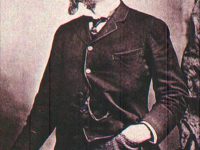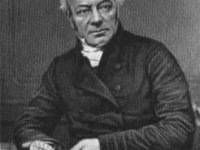
Sir Frederic Charles Bartlett (1886-1969)
On October 20, 1886, British psychologist Sir Frederic Charles Bartlett was born. Bartlett is known as Britain‘s most outstanding cognitive psychologist between the World Wars. He was one of the forerunners of cognitive psychology. Bartlett considered most of his own work on cognitive psychology to be a study in social psychology, but he was also interested in anthropology, moral science, philosophy, and sociology.
Frederic Bartlett – Early Years
Frederic Bartlett was born into a middle-class family and raised in Gloucestershire, England. He suffered from pleurisy at a young age, causing him to be homeschooled during his secondary years of education. In 1909, Bartlett graduated First Class Honours with a Bachelor of Arts degree in philosophy at The University Correspondence College. At London University he achieved his master’s degree with a distinction in both ethics and sociology in 1911.
He then went to St. John’s College, Cambridge, and in 1914 gained a first class honours in the Logic section of the Moral Sciences Tripos.[1] Here, he also met Charles Samuel Myers, the Director of the Cambridge Psychology Laboratory. The effects of Bartlett’s childhood illnesses kept him from participating in World War I. He became deputy head of the Cambridge Psychology Laboratory in 1914 when Myers was drafted into the war as a medical doctor. Bartlett ‘s experimental work at this time focused on perception and imaging which contributed to his appointment as a Fellow in 1917. Soon after the war ended, Myers left his Cambridge position, leaving a large donation to finance department lectureships. Bartlett became the Director of the Laboratory and Lecturer of Experimental Psychology.
Academic Career
He was appointed as the first professor of experimental psychology at Cambridge in 1931, was awarded a CBE in 1941, a knighthood in 1948 and a Royal Medal by the Royal Society in 1952.[1] During the period between 1914-1939, his research considered perception and memory. In 1932 he published the book he is most famously recognized for: Remembering: A Study in Experimental and Social Psychology , which explored Bartlett’s concept of conventionalization in psychology. Bartlett was discontented with the associationist theories of perception, learning, memory and thinking that prevailed at the time, and the use of meaningless nonsense material to study memory by Hermann Ebbinghaus [3]. Instead, he wanted to study perception and memory as they occur in real life.[1] Thus, his book included experiments testing the ability to remember using figures, photographs, and stories. Specifically, Remembering consisted of experimental studies on remembering, imaging, and perceiving. His Theory of Remembering involved social conditions that were influential to remembering, along with comparisons such as “free remembering” to special circumstances of remembering. The book provided an in depth analysis of Bartlett’s schema theory, which has continued to inspire scientists studying schema theories today.
The Constructive Nature of Memory
The “War of the Ghosts” experiment from Remembering was Bartlett’s most famous study and demonstrated the constructive nature of memory. A memory is constructive when a person gives their opinion about what had happened in the memory, along with additional influences such as their experiences, knowledge, and expectations. In the experiment, Bartlett assigned his Edwardian English participants to read the Canadian Indian Folklore titled “War of the Ghosts“. Participants were told to remember the story at extended intervals numerous times. Bartlett found that at longer intervals between reading the story and remembering it, participants were less accurate and forgot much of the information from the story. Most importantly, where the elements of the story failed to fit into the schemata of the listener, these elements were omitted from the recollection, or transformed into more familiar forms. Each participant’s report of the story mirrored his or her own culture, Edwardian English culture in this case.
Later Years
Bartlett’s concerns centered on determining stronger methodologies for social psychology by combining psychology and anthropology. A later work, Thinking: An Experimental and Social Study (1958), broke no new theoretical ground but added observations on the social character of human thinking.[2] After his retirement in 1951, Bartlett continued receiving honoris causa from various Universities. Bartlett later attained the title of Senior Lecturer of Psychology, a post which he held until his death in 1969 at the age of 82.
Works by Frederick Bartlett:
- Exercises in logic (Clive, London, 1922)
- Psychology and Primitive Culture (Cambridge University Press, Cambridge, 1923)
- Psychology And The Soldier (Cambridge University Press, Cambridge, 1927)
- Remembering: A Study in Experimental and Social Psychology (Cambridge University Press, Cambridge, 1932)
- The Problem of Noise (Cambridge University Press, Cambridge, 1934)
- Political Propaganda (Cambridge University Press, Cambridge, 1940)
- Religion as Experience, Belief and Action (Cumberledge, London, 1950)
- The Mind at Work and Play (Allen and Unwin, London, 1951)
- Thinking: An Experimental and Social Study (Allen and Unwin, 1958)
Richard Gregory – Sir Frederick Bartlett, memory and perception (38/57), [4]
References and Further Reading:
- [1] Frederic Bartlett, at Investigating Psychology
- [2] Frederic Bartlett, British Psychologist, at Britannica Online
- [3] Hermann Ebbinghaus and the Experimental Study of Memory, SciHi Blog.
- [4] Richard Gregory – Sir Frederick Bartlett, memory and perception (38/57), Web of Stories – Life Stories of Remarkable People @ youtube
- [5] Broadbent, D. E. (1970). “Frederic Bartlett. 1886-1969”. Biographical Memoirs of Fellows of the Royal Society. 16: 1–13.
- [6] Oldfield, R. C. (1972). “Frederic Charles Bartlett: 1886-1969”. The American Journal of Psychology. 85 (1): 133–140.
- [7] Frederick Bartlett at Wikidata
- [8] Timeline of British Experimental Psychologists, via Wikidata and DBpedia






Pingback: Psicología: – Psicología cognitiva